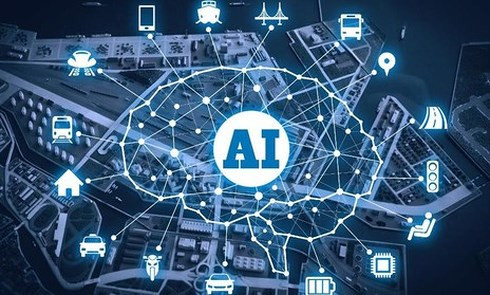
Thundermark Capital (New York-based venture capital firm) recently announced the Global AI Research Ranking 2022. Vietnam continues to maintain its impressive ranking at 26th place to be one of two representatives of Southeast Asia, besides Singapore, listed in the world's top 30 for AI research.
In the Top 100 leading global companies in AI research, Vietnam entered the top 20 for the first time with impressive acceleration of VinAI (Vingroup). VinAI ranks behind NEC (Japan - 19th), above Bosch (Germany - 21st) and many big names such as ByteDance (China - 23rd), SenseTime (China - 27th) and Naver (No. Korea - 28th).
VinAI was established only three years ago, but it has quickly made many great achievements in autonomous vehicles, genetic code research, and virtual doctor assistant development.
VinAI has also published many scientific works on AI at many international conferences. The strong development of VinAI is based on a team of about 200 AI scientists and engineers gathered from many countries around the world.
Other Vietnamese enterprises such as Viettel, VNPT and FPT have also invested, researched and developed AI in recent years.
However, the problem that has always bothered these businesses is not finance and supercomputers, but lack of human resources for AI in Vietnam.
According to data from the World Intellectual Property Organization (WIPO), more than 1,600 Vietnamese are studying and working in AI-related fields. Only about 700 people, including 300 experts, are doing this work in Vietnam. If counting the number of nearly 1 million employees working in the IT field, AI human resources are too small.
Mr. Tran Trung Hieu, CEO of TopCV, said that in the past few years, demand for recruiting AI personnel in Vietnam is high, but a shortage exists. In Vietnam, the supply of AI personnel meets only 10% of the recruitment demand of the domestic market.
An AI engineer is a profession that businesses roll out the red carpet to welcome. According to TopDev's 2021 IT market report, the average salary was 38 - 132 million VND/month - in the top 10 jobs with the highest salary in Vietnam.
Solutions
To solve the problem, businesses must recruit experts from abroad, recruit young talents for training, or "order" from domestic and foreign training institutions.
Only about 30% of IT graduates can work in AI, and the rest have to be further trained. Experts say that it is necessary to have a professional training program on AI.
Nguyen Manh Quy, Director of Viettel Cyberspace, said Viettel has actively recruited overseas Vietnamese experts and engineers specializing in AI from the US, France, Russia, and South Korea, and cooperated with experts in many countries (US, Japan, Singapore, Finland).
“We also cooperate with universities to train people for masters and doctoral degrees in data science and AI for the existing engineering workforce,” Mr. Quy said.
Mr. Nguyen Hai Nam, Director of FUNiX xSeries, said that it is necessary to link AI training institutions, and include more people for training in AI, not just people with bachelor degrees in math or programming.
Dr. Ho Tu Bao, Director of Data Science Laboratory, Institute for Advanced Study in Mathematics (Ministry of Education and Training), said that for AI to be applied in many areas of life, the university needs to teach students statistics and skills in using data.
In addition, instead of considering AI as part of information technology faculties, undergraduate and graduate training programs specializing in AI and data science should be developed.
From the perspective of human resource preparation, Dr. Bui Hai Hung, Director of the VinAI Research Institute, emphasized that training at universities is the key to solving staffing problems.
Dau Tu